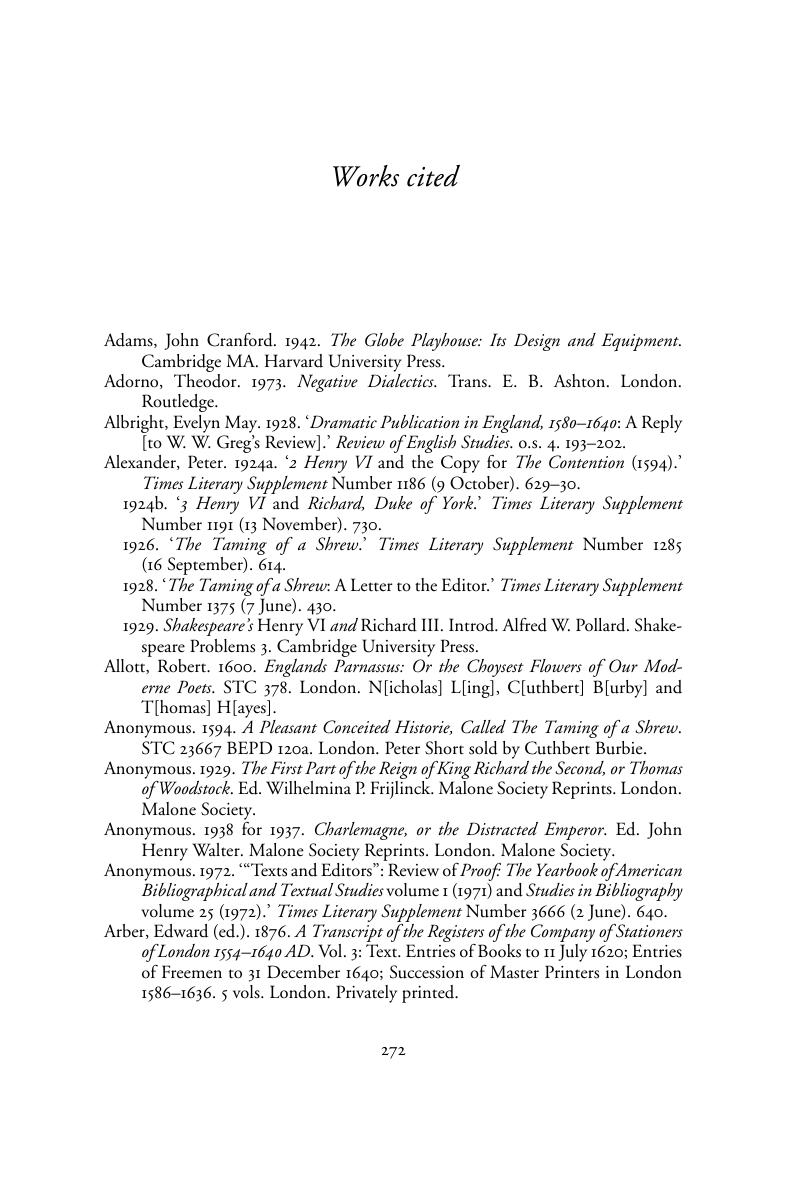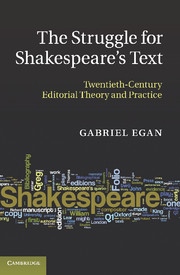Book contents
- Frontmatter
- Contents
- Preface
- Acknowledgements
- A note on references, quotations, names and pronouns
- Introduction
- 1 The fall of pessimism and the rise of New Bibliography, 1902–1942
- 2 New techniques and the Virginian School: New Bibliography 1939–1968
- 3 New Bibliography 1969–1979
- Intermezzo: the rise and fall of the theory of memorial reconstruction
- 4 New Bibliography critiqued and revised, 1980–1990
- 5 The ‘new’ New Bibliography: the Oxford Complete Works, 1978–1989
- 6 Materialism, unediting and version-editing, 1990–1999
- Conclusion: the twenty-first century
- Appendix 1 How early modern books were made: a brief guide
- Appendix 2 Table of Shakespeare editions up to 1623
- Appendix 3 Editorial principles of the major twentieth-century Shakespeare editions
- Works cited
- Index
- References
Works cited
Published online by Cambridge University Press: 06 December 2010
- Frontmatter
- Contents
- Preface
- Acknowledgements
- A note on references, quotations, names and pronouns
- Introduction
- 1 The fall of pessimism and the rise of New Bibliography, 1902–1942
- 2 New techniques and the Virginian School: New Bibliography 1939–1968
- 3 New Bibliography 1969–1979
- Intermezzo: the rise and fall of the theory of memorial reconstruction
- 4 New Bibliography critiqued and revised, 1980–1990
- 5 The ‘new’ New Bibliography: the Oxford Complete Works, 1978–1989
- 6 Materialism, unediting and version-editing, 1990–1999
- Conclusion: the twenty-first century
- Appendix 1 How early modern books were made: a brief guide
- Appendix 2 Table of Shakespeare editions up to 1623
- Appendix 3 Editorial principles of the major twentieth-century Shakespeare editions
- Works cited
- Index
- References
Summary

- Type
- Chapter
- Information
- The Struggle for Shakespeare's TextTwentieth-Century Editorial Theory and Practice, pp. 272 - 308Publisher: Cambridge University PressPrint publication year: 2010

